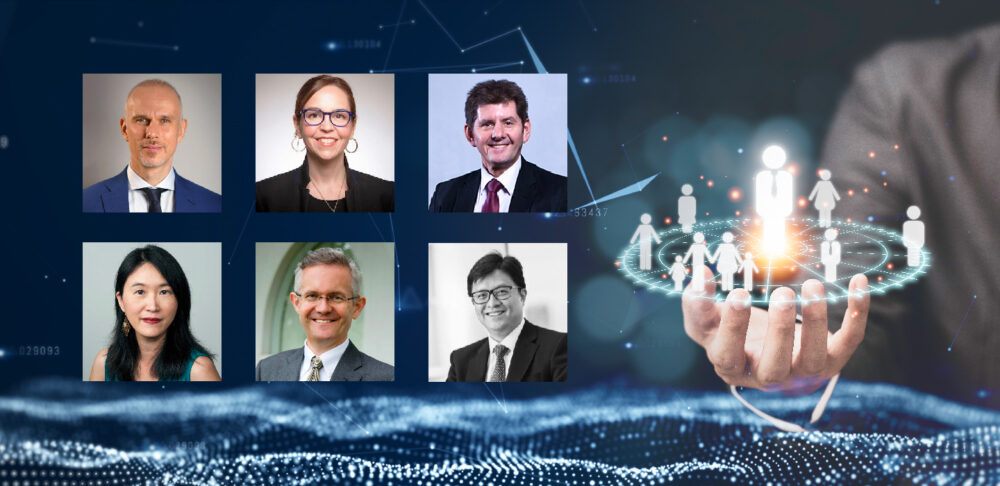Is the rapid advancement of AI creating a world where we put machines first and humans second?
The Centre on AI Technology for Humankind (AiTH) wants to address this question and more in its upcoming virtual seminar that includes the global launch of its manifesto called “The Road to a Human-Centred Digital Society: Opportunities, Challenges and Responsibilities for Humans in the Age of Machines”.
The manifesto declares AiTH’s thinking and objectives on employing a truly “human-centred” approach to AI. Companies and scholars alike are increasingly using the notion of “human-centred” AI, but unfortunately their understanding and application of the concept remains limited and mostly on the surface.
AiTH wants to change this and increase our understanding of what a human-centred approach stands for. This conceptual exercise is needed more than ever as society approaches a crossroad, with the looming threat of a technological crisis, which in its roots seems similar to how the global financial crisis of 2008 came about.
A tech crisis goes together with the emergence of a ‘machine-centred’ work culture where the relentless push for optimising performance overshadows worker needs and concerns, and hence, efficiency through technology.
“We aim to spark conversations about what human-centredness really should be about, the responsibilities of Big Tech in advancing ‘ethical AI’, and what the pursuit of a truly human-centred AI approach might look like in practice, especially so because optimizing efficiency is not the only thing that a humane society that makes use of new technologies should pursue,” said Provost’s Chair and Professor David De Cremer, Department of Management & Organisation. David is the Founder and Director of AiTH.
“We hope to work closely with organisations and policymakers to bring these recommendations – and our research surrounding them – into practice,” added Professor De Cremer.
One of the Manifesto’s recommendations is that AI should not replace or disrupt human labour in the workplace but complement and augment human ability on a variety of dimensions – and thus not only efficiency – that covers the experience of a human life and existence. “To do so, the future of work will have to be a collaborative one: where AI systems are deployed in ways that respect and connect with the skills and abilities that make us uniquely human – skills and needs such as creativity, autonomy, and social belonging,” Professor De Cremer explained.
“We should be advancing and developing machines to serve humans in their full existence, rather than preparing humans to adapt to and serve the logic and thinking mode of machines,” said Professor De Cremer.
Singapore’s AI development from a policy viewpoint
One of the seminar’s highlights includes an interview with Mr Yeong Zee Kin, Assistant Chief Executive (Data Innovation and Protection Group) of the Infocomm Media Development Authority of Singapore (IMDA) and Deputy Commissioner of the Personal Data Protection Commission (PDPC).
The discussion will focus on how AI governance in Singapore aims to adopt a human-centred approach and its benefits. Zee Kin oversees IMDA’s Artificial Intelligence and Data Industry development strategy.
Furthermore, to promote research on the field of Human-Centred AI (HCAI), AiTH will fund the launch of an annual award for the best HCAI article published in the academic journal AI and Ethics.
AiTH will also introduce the centre’s efforts to establish a yearly collection of HCAI papers – where the academic and corporate world will communicate with each other on the topic – in the same journal.
The event will finally include a panel discussion on the themes of human-centred AI. The panellists include:
- Professor Shannon Vallor, Baillie Gifford Chair in the Ethics of Data and Artificial Intelligence at the University of Edinburgh,
- Professor John MacIntyre, Pro Vice Chancellor at the University of Sunderland, and Chief Editor of ‘AI and Ethics’,
- Professor Sun Sun Lim, Professor and Head of Humanities, Arts and Social Sciences at the Singapore University of Technology and Design.
- Professor Simon Chesterman, Dean and Provost’s Chair Professor of the NUS Faculty of Law, and Senior Director of AI Governance at AI Singapore.




